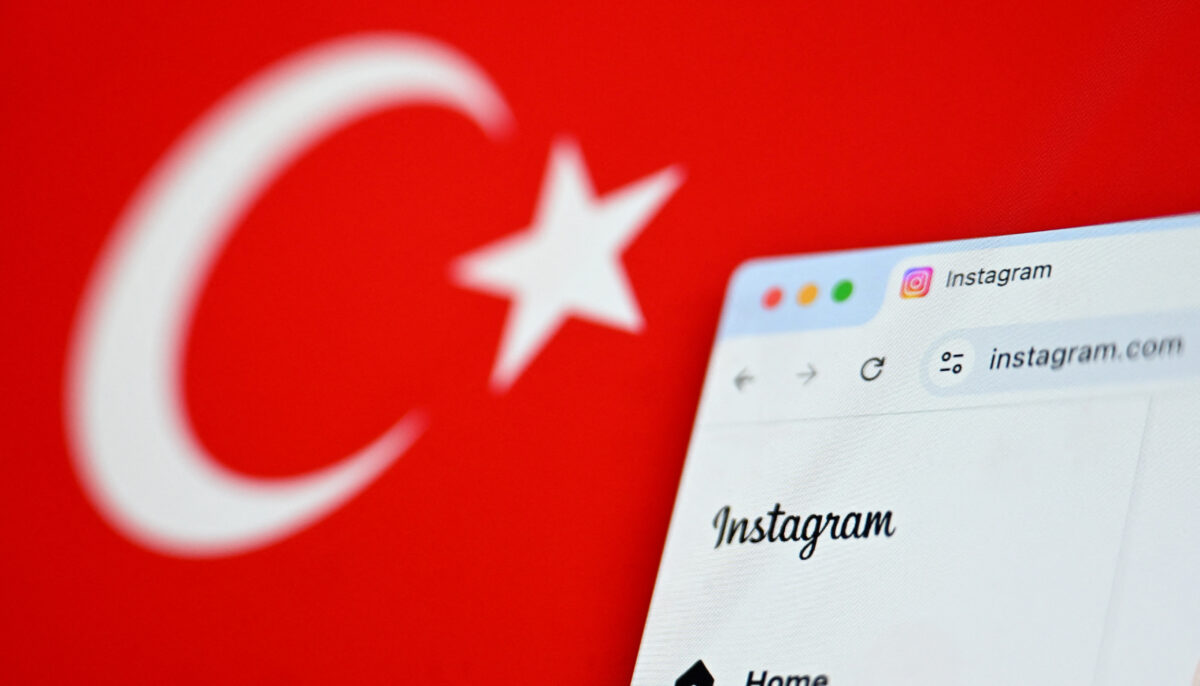In early August 2024, Turkey made headlines by imposing a sudden and controversial ban on Instagram, one of the country’s most widely used social media platforms.
Many news agencies and the wider public linked the ban to Instagram’s restrictions on content in support of Ismail Haniyeh, a prominent Hamas leader who was killed by an Israeli airstrike in Tehran.
A few days before the ban, Turkish authorities reacted strongly to the platform’s censorship of posts expressing condolences for Haniyeh, whom Turkey does not recognize as a terrorist.
Instagram’s parent company, Meta, has a policy prohibiting posts “glorifying” persons or organizations it recognizes as dangerous or terrorist. These are labeled as such under the “Dangerous Organizations and Individuals” (DOI) list, which is not publicly disclosed.
However, Meta officially states that the list contains every individual and organization that the US perceives as dangerous or terrorist. As Hamas is considered a terrorist organization by the USA, Ismail Haniyeh is considered a dangerous individual, and as such, any posts praising or mourning him are removed by Meta.
“We know that the DOI list is biased, causing significant censorship in our region,” said Mohamad Najem, SMEX’s executive director. “Removing content praising or reporting on Haniyeh is just one of many examples.”
Fahrettin Altun, head of the Turkish Presidency’s Communications Directorate, denounced Instagram’s actions as censorship and an attack on free speech, a stance shared by other government officials, including President Recep Tayyip Erdoğan, who proclaimed a day of mourning for Haniyeh.
The nine-day ban was imposed by Turkey’s Information and Communication Technologies Authority (BTK), citing “catalog crimes” as the reason without specifying which crimes Meta was accused of committing or facilitating. The ban was not approved by a judge despite the legal requirement.
These offenses, defined by the Turkish penal code, allow for precautionary measures to be taken without prior judgment. They include crimes against the security of the state, the constitutional order, and the government.
In addition to the political implications, the ban on Instagram was significant for its impact on the economy, as Turkish businesses rely heavily on the platform, especially in sectors like e-commerce and tourism.
Estimates suggested the ban could have led to economic losses of approximately $396 million per week, affecting millions of users and businesses nationwide.
Contradictory application of Meta’s content moderation policies
Public reaction to the ban was quick and fierce, with many people in Turkey decrying it as an unjustifiable act of censorship. People rushed to download VPNs and bypass access restrictions, with many accidentally downloading malware on their phones.
The Turkish government provided no further explanation but announced ongoing negotiations with Meta.
Turkey eventually lifted the ban after Meta reportedly agreed to comply with some of the Turkish government’s demands, such as removing specific content and adhering to local laws on online speech. However, the exact terms of this agreement remain unclear, and it is unlikely that Meta will drastically alter Instagram’s content moderation policies.
The terms of the agreement were not publicly disclosed, but the minister of transportation and infrastructure announced on X that Meta should comply with the national laws of Türkiye.
While government partisans announced Meta’s acceptance as a victory, the company has offices in Türkiye which oblige it to abide by local laws. Otherwise, the government or the Turkish justice system could initiate an investigation or impose sanctions. The instated ban is technically illegal, as the BTK’s decision should have been approved by a legal body.
An instant ban without prior warning and without following the legal procedure indicates that the government rushed this political move to rally conservative voters using the war in Gaza and the killing of Ismail Haniyeh, as Erdogan’s party has been losing voter support.
“Praise for assassinated political leaders, especially Palestinian, is a common practice in our culture,” added Najem, urging Meta to publish its DOI list and to adhere to its principles on transparency.
Instagram flagged the mourning post by Turkey’s head of communications, Fahrettin Altun, as breaching the community guidelines but kept it on the platform for “newsworthiness.” However, Meta’s content moderation policies emphasize using “reporting language” rather than glorification when addressing entities under its DOI list.
The Turkish official stated: “I commemorate martyr Ismail Haniyeh with mercy and gratitude on the 10th day of his martyrdom,” using an unambiguously positive tone. This does not qualify as newsworthiness, according to Instagram’s policies, and the company must then at least allow everyone in the region to express their opinion on the matter freely.
“What we have witnessed so far from Meta is a contradictory application of its policies,” said Najem. “On the one hand, they allowed Turkish officials to publish admiration posts for Hanieh while at the same time forbidding others in our region to simply mourn or post news about his assassination. This is pure censorship from Instagram.”
As of the publication of this article, the government has not published any official communications about the ban besides a tweet on X.
Along with Instagram, authorities banned Wattpad, a story-sharing platform, and the popular children’s online game Roblox for accusations of child abuse.
The AKP’s strategic use of social media bans
Turkey’s government has a history of arbitrarily banning or restricting access to social media platforms as part of broader efforts to control online discourse and limit dissent.
Wikipedia was banned in April 2017 under “national security concerns” after the online encyclopedia refused to remove content linking Turkey to terrorist organizations, according to officials. The ban lasted nearly three years and ended in December 2019, when the Constitutional Court ruled that it violated freedom of expression.
YouTube was also blocked in 2014 after a leaked audio recording surfaced, allegedly revealing high-level government officials discussing military operations in Syria. The platform was eventually restored after legal battles as well as domestic and international pressure on the government.
Turkish authorities have also banned Twitter on different occasions. In 2014, just before local elections, the Turkish government blocked Twitter after users widely circulated audio recordings allegedly exposing corruption within the government. In 2023, Twitter was temporarily banned to “prevent misinformation” in the aftermath of the earthquakes that killed at least 50,000 people.
These bans often coincide with politically charged moments, such as elections or significant events that challenge the government’s narrative. The Instagram ban came at a time when the AKP government was under pressure. High inflation amidst an economic downturn and a lack of adequate support for Palestinians has caused Erdogan to lose conservative voters to newly created political parties, such as Yeniden Refah, the successor of the party Refah, where Erdogan first shined as a political figure.
Photo Credit: HAKAN NURAL / ANADOLU / Anadolu via AFP



